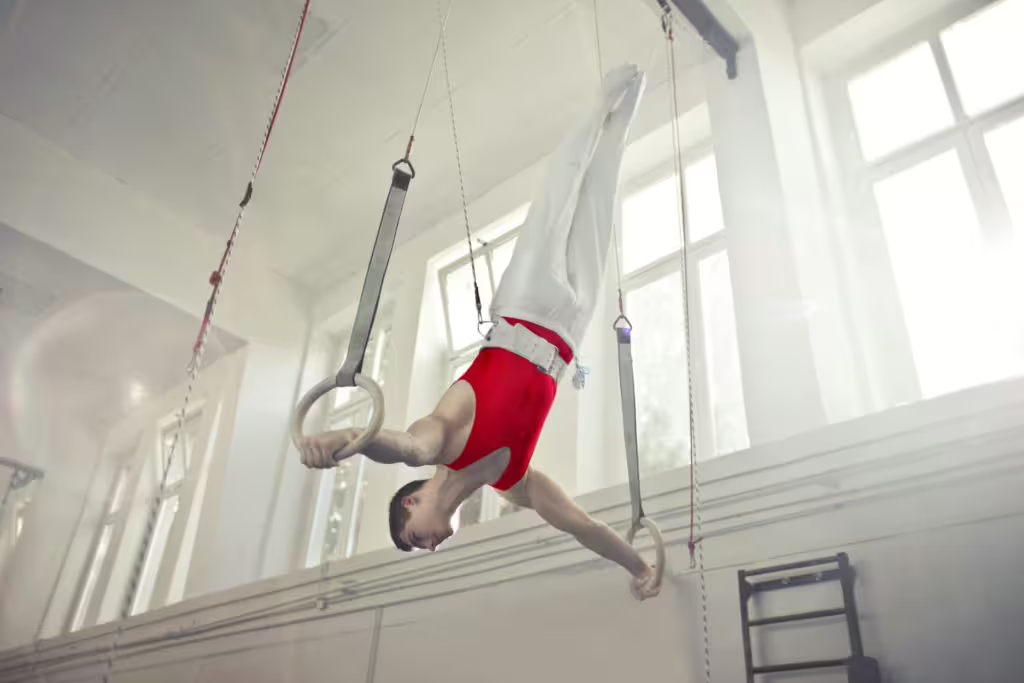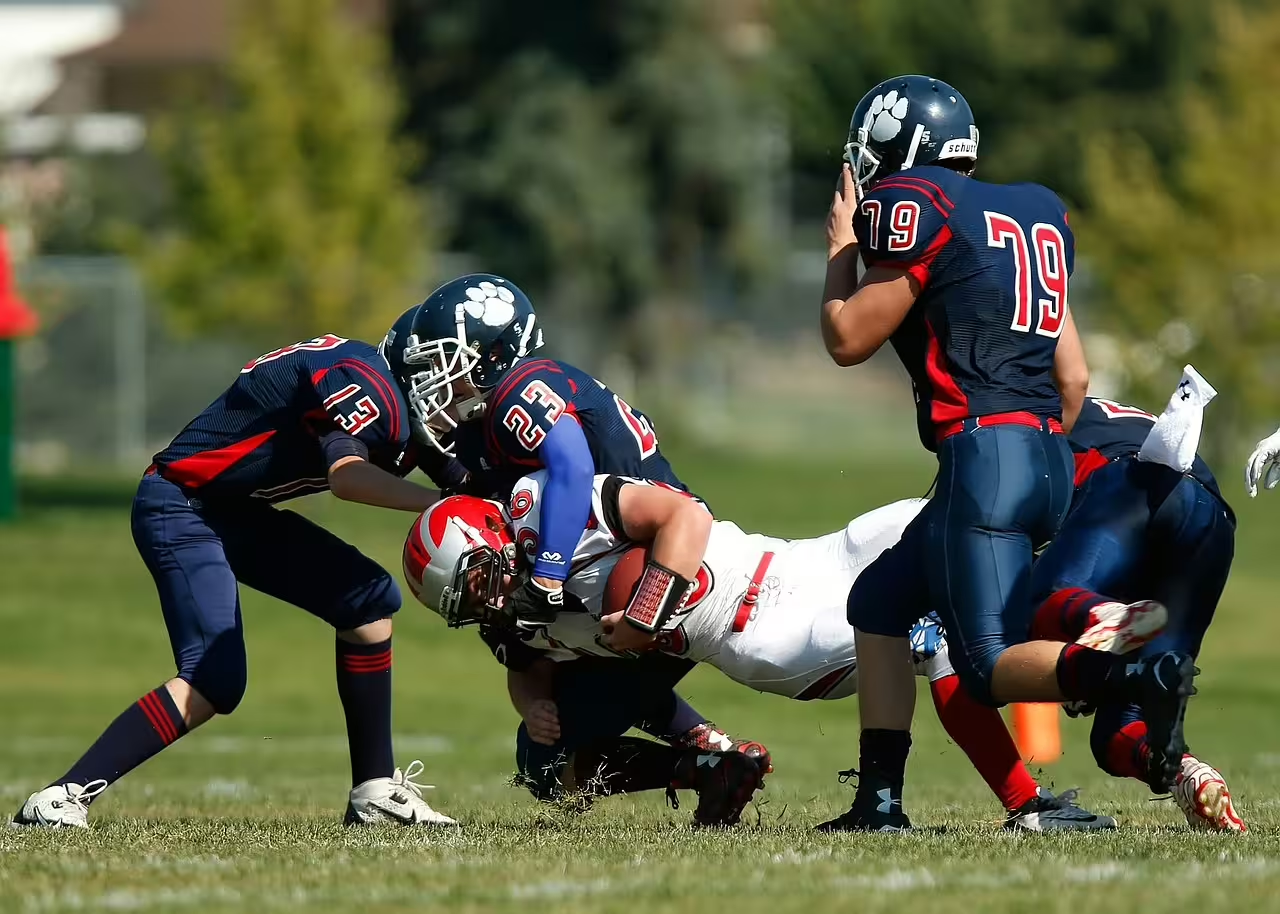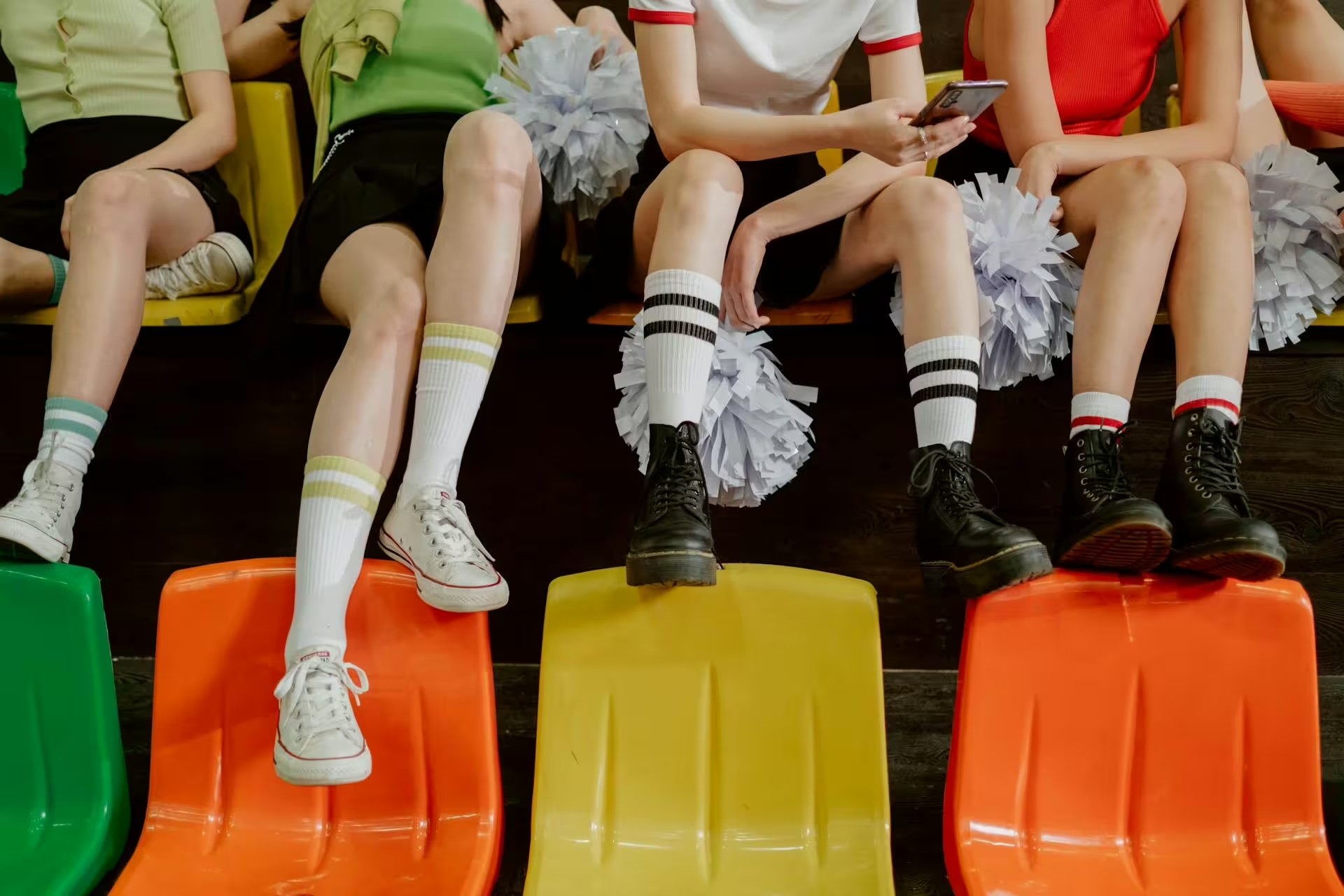Many young children participate in gymnastics. Of all the youth sports on this list, gymnastics might be the most accessible for kids under the age of three. This is due to the fact that places like Gymboree and The Little Gym exist, and though such organizations only provide toddlers with the barest examples of gymnastic skills, they set a baseline for kids who desire to continue on to more advanced levels; and many do.
After all, gymnastics is one of the most rewarding sports that a child can participate in. It combines strength, flexibility, balance, coordination, and discipline, offering kids a unique opportunity for physical, mental, and emotional growth. However, it can also be quite demanding, not only for the athlete themselves, but for the parents whose job it is to encourage and support them. As with any challenging endeavor, gymnastics requires a supportive environment in order for the child to thrive. As a parent, it is imperative that we understand the demands of this sport. Moreover, it is just as crucial for parents to learn how they can provide meaningful support.
In this article, we will delve into the mental and physical aspects that gymnastics both requires and enhances. At the same time, we will offer parents practical tips for how to nurture their child’s success and enjoyment in this sport.
The Physical Demands of Gymnastics
Gymnastics represents a full-body workout with nearly every session. What this means for young athletes is that the sport develops various physical attributes from a very early age, including:
Strength and Power:
Gymnasts rely heavily on upper body, core, and leg strength in order to do the amazing flips, turns, tumbles, and other acrobatic feats they are expected to perform. Whether it’s holding a handstand for a long time, performing amazing moves on on the rings, or executing powerful tumbles, strength training is a key part of gymnastics. Also, many people forget that in order to maintain balance and even land with accuracy, gymnasts need to be able to keep their core steady. This requires far more strength than the often lithe figures of professional gymnast might indicate.

Flexibility:
Those of us who have seen a gymnastics routine understand that flexibility is vital for achieving the graceful and fluid movements required by the sport. Stretching is a daily practice that gymnasts utilize in order to prevent injuries and improve their range of motion. Many gymnasts also do pilates or yoga to increase their flexibility when they can’t get to the gymnasium.
Balance and Coordination:
It should come as no surprise that young gymnasts need to have a supernatural degree of balance as compared to other kids their age. It is not easy to balance on narrow beams or coordinate complex flips and twists. These movements and many others that are part and parcel to the gymnastic experience, demand exceptional control and focus on behalf of the gymnast. And while many kids can learn to balance better over time, the best way to develop these skills is through repetitive practice and drills.
Endurance:
Most sports require kids to have pretty good endurance, and although gymnastic routines only last a few minutes, they require intense bursts of energy on the part of the child. This is why it is so imperative that kids build cardiovascular endurance right from the start. This is skill that will not only ensure your child can perform at their best without fatigue, it will also help them in other areas of their life, particularly when it comes to their future physical fitness.
The Mental Challenges of Gymnastics
Gymnastics does demand a bit more physicality than other sports, but it’s mentally tough too. Young gymnasts often face challenges that will test their focus, confidence, and resilience.
Concentration:
One of the most important facets that judges consider when awarding points in gymnastics competitions is precision. How precise a gymnast’s movements are is critical in gymnastics. In fact, even a momentary lapse in focus could mean the difference between a perfect landing, a trip, or even a fall. We don’t have to tell you how important it is that gymnasts avoid injury whenever possible. Thus, developing concentration skills is more than just essential for scoring points, it can be a matter of safety.
Fear Management:
Gymnastics involves young athletes executing flips, leaps, and jumps of varying degrees of difficulty. These types of movements can be intimidating, even for the most experienced gymnast, but they are certainly so for those who are just starting out. In fact, any new move that a young gymnast wants to try is bound to be scary. In order to succeed in gymnastics, gymnasts need to overcome their nervousness, uncertainty, and most importantly of all, the fear of progress. This fear management requires kids to have mental toughness and a positive mindset.
Handling Pressure:
All sports have their competitive and less competitive levels, but gymnastics tends to lean more towards the former. This is a competitive sport where athletes perform by themselves in front of judges and spectators. Gymnasts are always striving to outdo themselves, their teammates, and the gymnasts on other teams. Managing nerves and performing under pressure is a skill that takes time to develop.
Dealing with Setbacks:
Gymnasts deal with injuries, mistakes, and plateaus in progress all the time. These are the most common things to overcome in gymnastics. How a child deals with setbacks like these and how resilient they are, can make all the difference in their overall performance. The ability to bounce back is a crucial traits for long-term success in any sport, gymnastics especially.
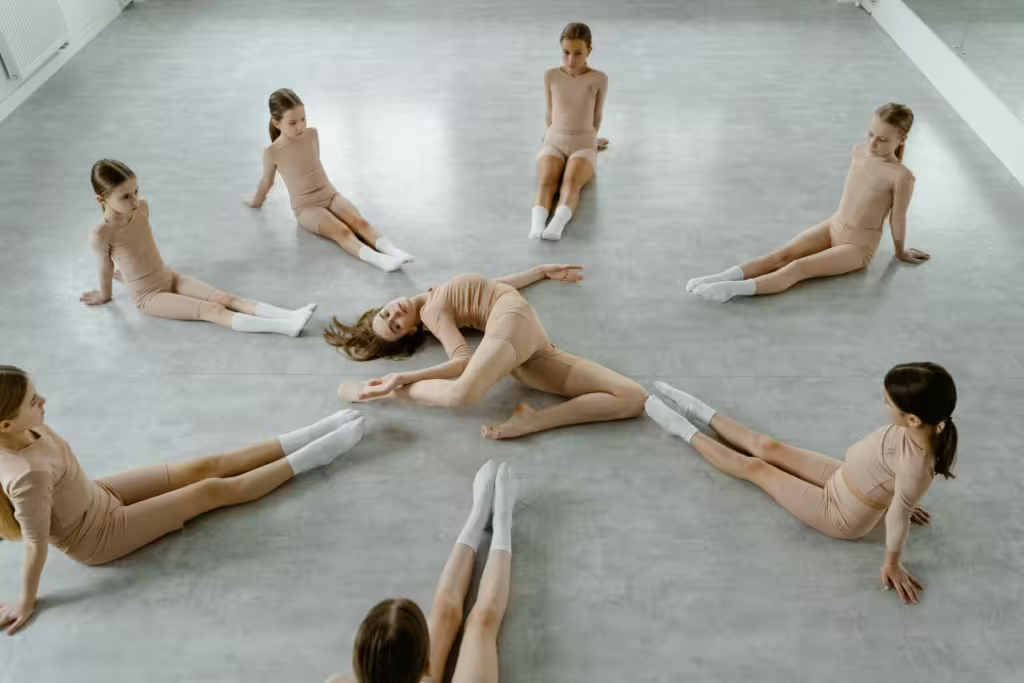
How Parents Can Support Their Gymnast
So, you now understand all the things a kid needs to succeed in gymnastics, but how can you help them to develop these traits as a parent? A parent’s role in their child’s gymnastics journey might be pivotal, but there are many ways for them to provide support. Here are some ways that parents can offer the best support:
Foster a Positive Mindset
Parents are perfectly placed to help foster positivity in their child. It is up to us to help our children view gymnastics as an opportunity for growth rather than just a competitive pursuit. That is why it is always preferable to encourage kids to focus on their personal effort and progress instead of the desire to reach perfection. That’s not to say that precision isn’t important, especially in gymnastics, but it doesn’t have to be the main concern, not until your kid shows interest in a more competitive level of the sport. As always, do your best to celebrate even the smallest victories and remind your kids that mistakes, trips, and falls are just part of the learning process.
Emphasize the Importance of Rest and Recovery
We all know how difficult gymnastics training can feel, even if we’re just watching our kids train. Sure, when they are young, the process is lighthearted and uplifting, but as competition intensifies, so too does the intensity involved in practice. It is at these higher levels of physicality that rest becomes even more essential than it had previously. Rest is needed to prevent burnout and injuries. Parents should always ensure that their child gets adequate sleep, takes rest days, and engages in activities outside of gymnastics. All of these things will allow them to recharge and be ready to perform at their best during the next meet or practice session.
Prioritize Nutrition and Hydration
As parents, we need to make sure that our kids are eating right. This is even more imperative when kids play sports. Fueling your child’s body with the right nutrients is crucial for achieving peak performance. Thus, parents need to facilitate or otherwise encourage their children to eat a balanced diet rich in protein, complex carbohydrates, healthy fats, and plenty of fruits and vegetables. As always, don’t forget to stress the importance of staying hydrated, especially during long meets or intense practice sessions.
Be Patient and Understanding
Progress in any sport can be slow at the start. Gymnastics progress, in particular, can be slow and sometimes frustrating for parents and athletes alike. This is why parents need to exercise patience at all times. This patience will likely trickle down to the child themself, allowing them to take the time they need to master skills and overcome obstacles. Always acknowledge your kid’s hard work and perseverance, even if the results take more time than either of you were expecting them to.
Communicate with Coaches
Parents should be open to establishing a healthy relationship with their child’s coaches. Trade information and always keep open lines of communication with them so that you understand the training plan, expectations, and how you, as a parent, can reinforce their efforts at home. Though the instinct might be to involve yourself more deeply into your kid’s gymnastics journey, do your best to avoid directly interfering with coaching methods…unless there are concerns about safety or well-being.
Encourage Balance
While gymnastics may be a significant part of a young athlete’s life, it’s important that you as a parent do what you can to help them maintain a balance between life and sport. Parents should take time to encourage their kids to participate in other hobbies, social activities, and academics. Doing this will not only ensure a well-rounded experience for your child, it will help them develop into a more well-rounded person.
Handle Competitions Gracefully
Grace is not an easy thing for kids to learn; either the grace to accept a loss or to be graceful about winning. Yet, while competition days can be nerve-wracking for both you and your child, it is always important that we do our best to stay cool, even when the pressure starts to mount. Parents can help simply by being their kids’ biggest cheerleader, regardless of the outcome. Remind your child to focus on effort and sportsmanship rather than their final scores and rankings.
Addressing Common Challenges in Gymnastics
Fear of Failure
If your child seems as though they are afraid of falling short of expectations, allay those fears. Counter this erroneous internal notion by emphasizing that failure is nothing more than an opportunity for us to learn. A good way to counter this is by sharing examples of famous gymnasts who overcame setbacks to inspire resilience.
Pressure to Perform
It’s natural for all young athletes to feel pressure during competitions or when attempting new skills for the first time. Parents can counter this by encouraging relaxation and mindfulness techniques like deep breathing and visualization to help them stay calm.
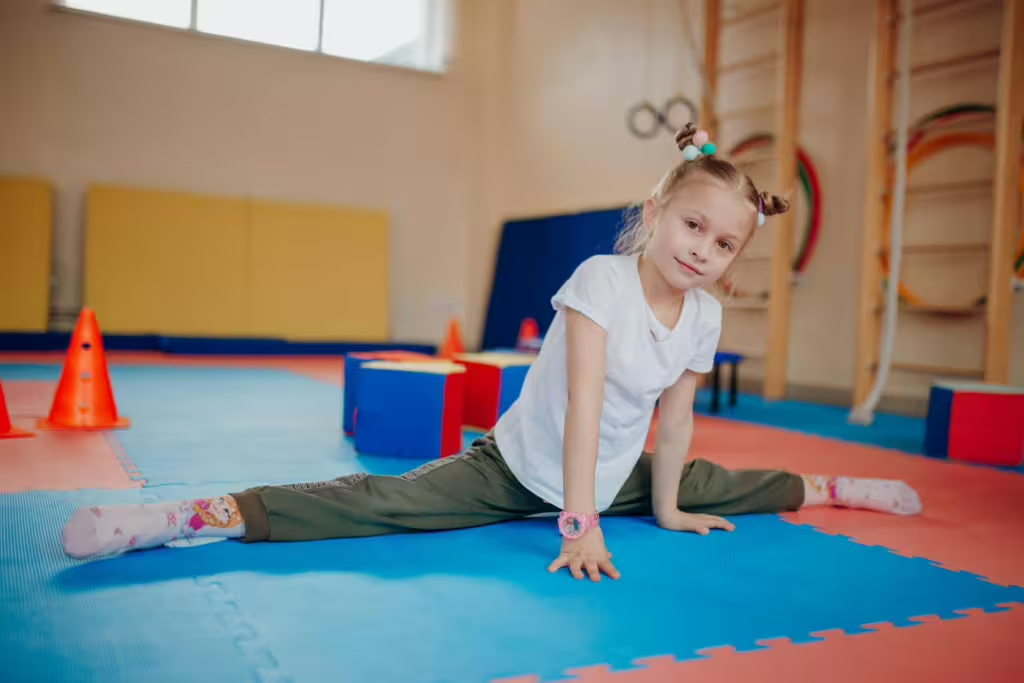
Building a Strong Support System
Just as being a gymnast can be challenging for a child, being a gymnastics parent can be equally challenging. The good news is that you don’t have to do it all alone. Build a network of support by:
Connecting with Other Parents: Share experiences and advice with other parents so that you can navigate gymnastics challenges together.
Seeking Professional Guidance: Consult nutritionists, physiotherapists, or sports psychologists as needed. These professionals may be very helpful in addressing specific concerns.
Encouraging Peer Support: Make friends with the parents of your child’s friends and teammates! Parents should seek to foster friendships within your child’s gymnastics community in an effort to create a positive and encouraging environment for all the young athletes involved.
Cultured Athlete Says…
As you can see, despite the challenges that gymnastics often brings their way, the sport offers children countless benefits that make the journey more than worthwhile. As they learn and grow, your child will develop physical fitness, discipline, and mental toughness that they will be able to use in all facets of life. Young gymnasts learn to set goals, work hard, and overcome obstacles; all things they can take with them as they traverse the wending road of life.
Always remember, a parent’s unwavering support and encouragement are the foundation of a child’s success and enjoyment in any sport. So long as you learn patience, guidance, and to celebrate even their minor achievements, your child will learn to cherish the journey you are making together; and that is one of the most important things we can do for them as parents.
Discover more from CulturedAthlete
Subscribe to get the latest posts sent to your email.

